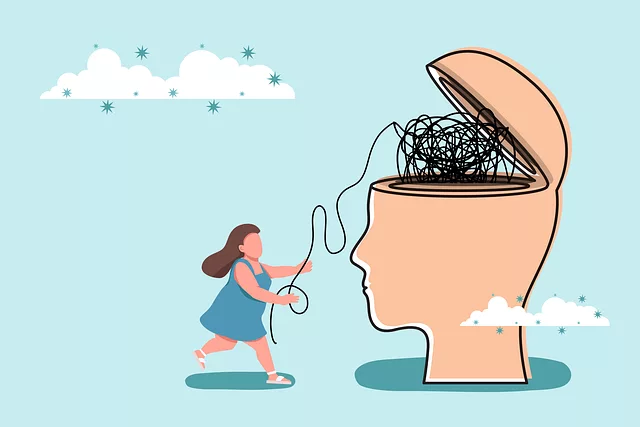The Kaiser Permanente mental health appointment center in Parker offers comprehensive depression prevention and treatment through professional help, accessible resources, individual therapy, support groups, lifestyle changes, mindfulness meditation, community engagement, and tailored care with cultural competency training. These strategies aim to reduce symptoms, build resilience, and foster emotional well-being for a better quality of life.
Depression is a prevalent yet treatable condition, and proactive strategies can play a pivotal role in prevention. This article explores various avenues to combat depression, drawing insights from reputable sources like Kaiser Permanente and practical techniques by Parker. We delve into understanding the signs, seeking professional help at mental health appointment centers, adopting lifestyle changes, building resilient coping skills, and harnessing community engagement for social connections. By integrating these strategies, individuals can enhance their well-being and safeguard against depressive episodes.
- Understanding Depression: Signs and Symptoms Recognized by Kaiser Permanente
- Role of Professional Help: Finding Support at Mental Health Appointment Centers
- Lifestyle Changes: Parker's Proven Strategies for Mood Enhancement
- Building Resilient Coping Skills to Prevent Relapse
- Community Engagement: Social Connections for Overcoming Loneliness and Isolation
Understanding Depression: Signs and Symptoms Recognized by Kaiser Permanente

Depression is a common yet serious mental health condition that can significantly impact an individual’s daily life and overall well-being. Recognizing the signs early on is crucial for effective prevention and treatment. According to Kaiser Permanente, depression may manifest in various ways, including persistent feelings of sadness, loss of interest or pleasure in activities once enjoyed, changes in appetite and sleep patterns, fatigue, difficulty concentrating, and even thoughts of death or suicide. Their mental health appointment centers in Parker emphasize the importance of seeking professional help at the first sign of these symptoms.
Kaiser Permanente’s approach to depression prevention involves a multi-faceted strategy. They offer resources like the Mental Wellness Podcast Series Production, which provides accessible information on managing mental health. Additionally, their Risk Management Planning for Mental Health Professionals guides practices in creating safe and supportive environments. The organization also develops Crisis Intervention Guidance to equip individuals with tools to handle sudden distressing events, potentially preventing more severe depressive episodes.
Role of Professional Help: Finding Support at Mental Health Appointment Centers

For many individuals dealing with depression, seeking professional help is a pivotal step towards recovery. Kaiser Permanente mental health appointment centers in Parker and surrounding areas offer specialized services designed to address depressive disorders effectively. These appointments provide a safe space where individuals can openly discuss their feelings, struggles, and concerns with trained mental health professionals.
The benefits of these centers extend beyond individual therapy sessions. They often host community outreach programs that foster connections and support networks among patients. Additionally, some facilities offer cultural competency training for healthcare providers, ensuring sensitive and effective care tailored to diverse populations. Social skills training is another valuable resource, empowering individuals with coping mechanisms and strategies to navigate social interactions more confidently.
Lifestyle Changes: Parker's Proven Strategies for Mood Enhancement

Depression prevention starts with acknowledging the power of lifestyle changes, and Parker’s Proven Strategies for Mood Enhancement offer a compelling approach. Incorporating regular physical activity, maintaining a balanced diet, and prioritizing quality sleep can significantly impact mental well-being. These simple yet effective habits not only promote overall health but also serve as a foundation for managing stress and improving mood.
For those seeking further guidance, the Kaiser Permanente mental health appointment center offers specialized support. Their healthcare providers are trained in various techniques, including conflict resolution strategies and resilience building, tailored to individual needs. Additionally, cultural competency training ensures that patients receive care that respects their unique backgrounds and perspectives, fostering a supportive environment for addressing depression effectively.
Building Resilient Coping Skills to Prevent Relapse

Building resilient coping skills is a powerful strategy to prevent relapse and manage depression effectively. The Kaiser Permanente Mental Health Appointment Center in Parker emphasizes that individuals equipped with robust coping mechanisms can navigate life’s challenges more adeptly, thereby reducing the risk of depressive episodes. This involves learning techniques like mindfulness meditation, which fosters present-moment awareness and emotional regulation.
Through regular practice, these skills can help individuals respond to stressful situations with more flexibility and positive thinking. The Mental Illness Stigma Reduction Efforts and Community Outreach Program Implementations often promote such coping mechanisms as a proactive approach to mental health care. By fostering a sense of resilience, these strategies not only prevent relapse but also empower individuals to lead more fulfilling lives.
Community Engagement: Social Connections for Overcoming Loneliness and Isolation

Community engagement plays a pivotal role in depression prevention by addressing feelings of loneliness and isolation, which are significant risk factors for mental health disorders. The Kaiser Permanente mental health appointment center in Parker emphasizes the power of social connections as a tool against burnout prevention. Building strong relationships within communities fosters a sense of belonging, enhancing individuals’ emotional intelligence and inner strength development.
Participating in community activities, joining support groups, or volunteering can provide opportunities for meaningful interactions. These connections encourage open conversations about mental health, reduce stigma, and offer a safety net during challenging times. By fostering social integration, communities become supportive environments that contribute to overall well-being, thereby mitigating the risk of depression and promoting resilience.
Preventing depression involves a multi-faceted approach, from understanding its signs (as recognized by Kaiser Permanente) to adopting lifestyle changes suggested by experts like Parker. Regular engagement with a Kaiser Permanente mental health appointment center and building resilient coping skills are also vital components. Community involvement plays a significant role in combating loneliness and isolation, making it an essential strategy for long-term well-being. By combining these methods, individuals can enhance their mood and reduce the risk of relapse, leading to a more fulfilling life.






